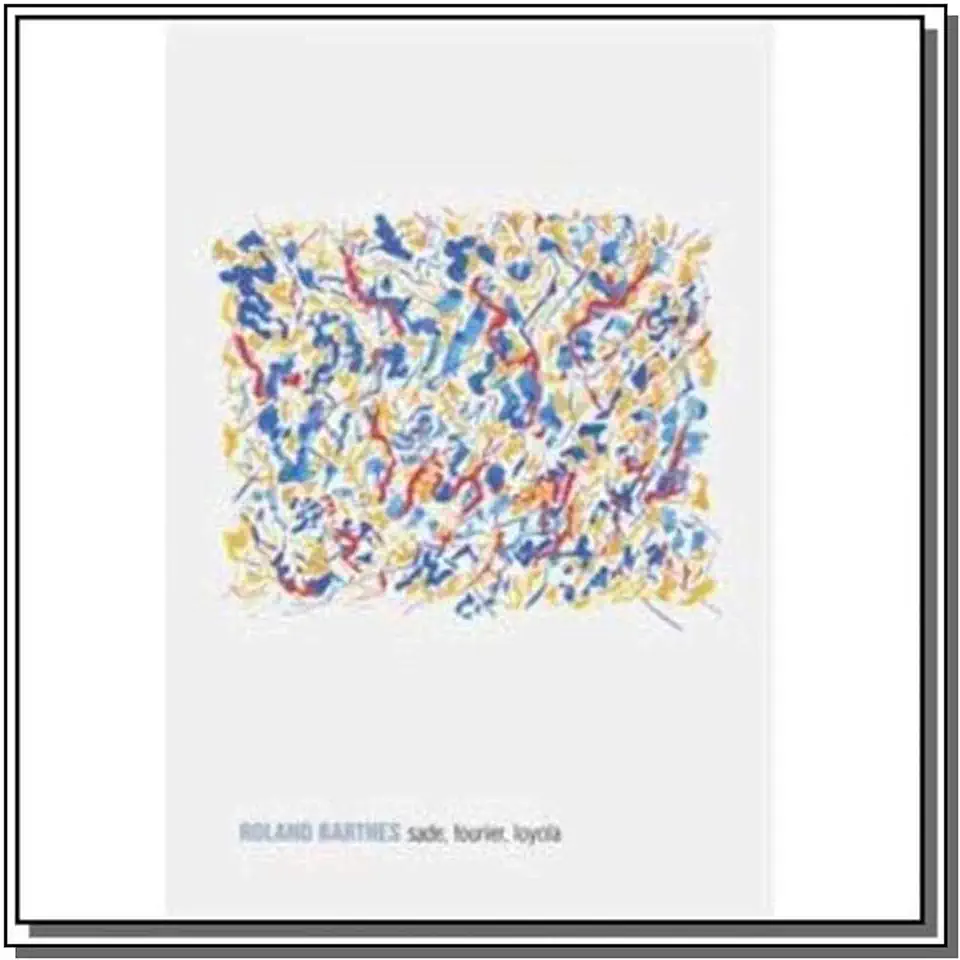
Sade, Fourier, Loyola - Roland Barthes
Sade, Fourier, Loyola: A Sublime Economy of Signs
In his seminal work, "Sade, Fourier, Loyola," Roland Barthes embarks on an intellectual journey that delves into the depths of three extraordinary figures who have left an indelible mark on the realms of literature, philosophy, and religion. Barthes masterfully weaves together their lives, ideas, and writings, revealing the profound connections and underlying currents that shape human desire, power, and the pursuit of pleasure.
Unveiling the Sublime Economy of Signs
At the heart of Barthes' analysis lies the concept of the "sublime economy of signs." He argues that these three thinkers, despite their vastly different backgrounds and approaches, share a common fascination with the power of signs and symbols to evoke intense emotional responses and disrupt conventional notions of morality and social order.
Sade: The Subversive Libertine
The Marquis de Sade emerges as a figure of radical transgression, challenging the very foundations of social and sexual norms. Through his scandalous writings, Sade explores the uncharted territories of human desire and the pursuit of pleasure, pushing the boundaries of what is considered acceptable and permissible. Barthes delves into Sade's provocative ideas, highlighting his critique of societal hypocrisy and his relentless pursuit of individual freedom.
Fourier: The Utopian Socialist
Charles Fourier, a visionary socialist, presents a contrasting yet complementary perspective. Fourier envisions a utopian society where harmony, pleasure, and cooperation reign supreme. Barthes examines Fourier's intricate social theories, his belief in the transformative power of passion, and his quest for a world free from exploitation and inequality.
Loyola: The Spiritual Ascetic
Ignatius of Loyola, the founder of the Jesuit order, stands as a figure of profound religious devotion and spiritual discipline. Barthes explores Loyola's rigorous spiritual exercises, his emphasis on self-mortification, and his unwavering commitment to the pursuit of divine grace. Through Loyola's writings and teachings, Barthes uncovers the paradoxical nature of religious ecstasy and the allure of self-sacrifice.
Interweaving Lives, Ideas, and Desires
Barthes masterfully interweaves the lives and ideas of these three seemingly disparate figures, revealing the intricate connections that bind them together. He demonstrates how their shared fascination with signs, symbols, and the pursuit of pleasure manifests itself in their diverse works, from Sade's erotic fantasies to Fourier's utopian visions and Loyola's spiritual meditations.
A Profound Exploration of Human Nature
"Sade, Fourier, Loyola" is not merely an intellectual exercise; it is a profound exploration of human nature, desire, and the complex interplay between pleasure, power, and spirituality. Barthes' analysis transcends disciplinary boundaries, drawing upon literature, philosophy, history, and religion to present a multifaceted understanding of human experience.
A Must-Read for Intellectual Seekers
This book is a must-read for anyone seeking to deepen their understanding of human desire, the power of signs, and the complexities of social and religious thought. Barthes' brilliant insights and provocative arguments challenge conventional wisdom and invite readers to embark on their own intellectual journeys of discovery.
Purchase Your Copy Today!
Don't miss this opportunity to delve into the sublime economy of signs and explore the fascinating worlds of Sade, Fourier, and Loyola. Purchase your copy of "Sade, Fourier, Loyola" today and embark on an intellectual adventure that will leave an indelible mark on your mind.